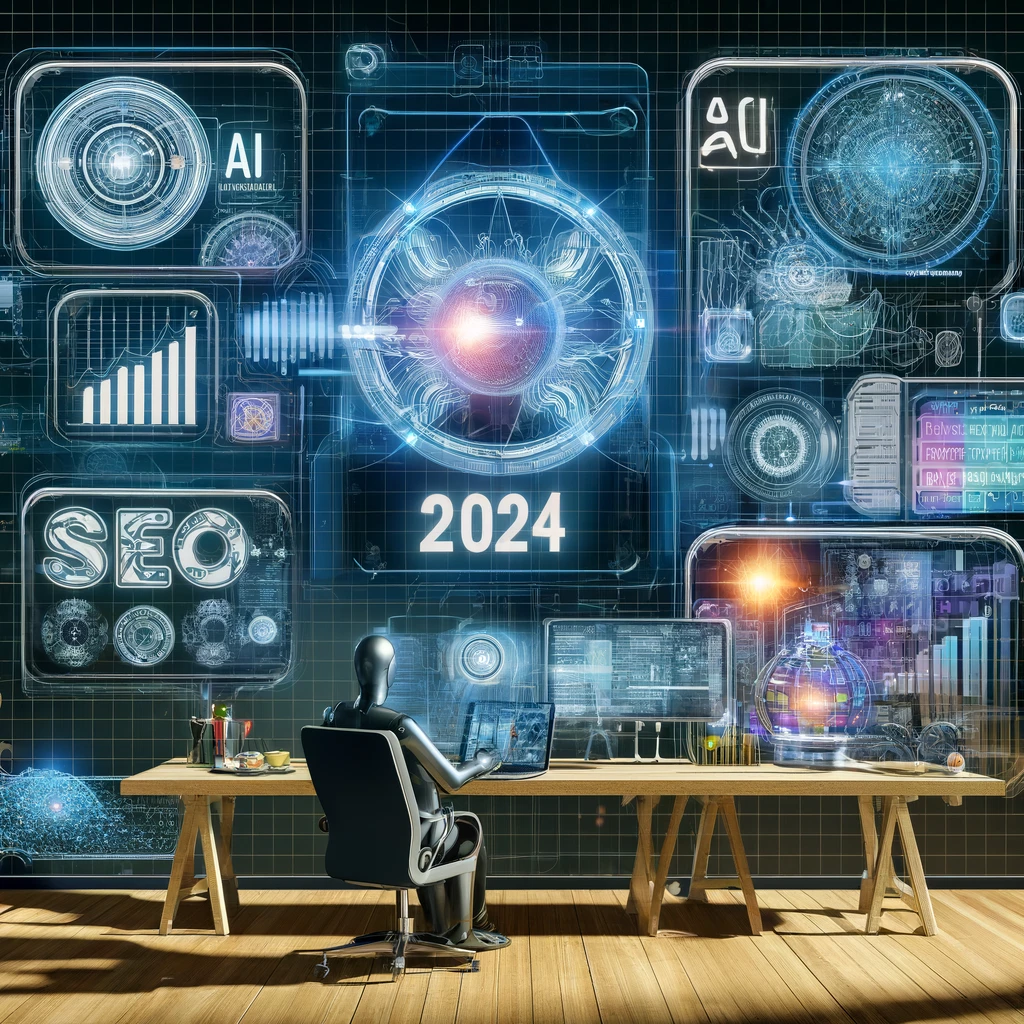Artificial Intelligence (AI) is transforming the digital landscape, and its impact on content creation and Search Engine Optimization (SEO) is profound. As we move into 2024, understanding how AI tools and technologies are reshaping these fields is crucial for digital marketers and content creators who wish to stay ahead of the curve. This article explores the role of AI in content creation and SEO, offering insights into how to leverage these advancements for improved visibility and engagement.
The Integration of AI in Content Creation
AI technologies have revolutionized the way content is created, enabling more efficient processes and personalized experiences. Here’s how AI is changing the content creation game:
- Automated Content Generation:
- AI tools like GPT-3 and others have the capability to generate written content at scale. These tools can produce everything from blog posts to full reports, significantly reducing the time and effort involved in content creation.
- Content Personalization:
- AI algorithms analyze user data to tailor content according to individual preferences and behaviors. This level of personalization enhances user engagement and increases the chances of conversion.
- SEO Content Optimization:
- AI can suggest improvements in real-time, such as SEO-friendly titles, keyword integration, and content structure, making the content more likely to rank higher in search engine results.
AI’s Impact on SEO Strategies
The influence of AI doesn’t stop at content creation; it extends into the realm of SEO, optimizing how content is discovered and ranked:
- Search Algorithms:
- Search engines like Google use AI to better understand and interpret search queries. Google’s BERT and later algorithms focus on the intent behind searches, prioritizing content that best answers user queries.
- Voice and Visual Search Optimization:
- As voice and visual search technologies become more prevalent, AI helps optimize content for these formats. AI understands and processes natural language from voice queries and visual data from images and videos to deliver more accurate search results.
- Predictive Analytics:
- AI tools provide predictive insights into SEO trends and user behaviors, allowing marketers to anticipate changes and adapt their strategies accordingly.
Challenges and Considerations
While AI offers numerous benefits, there are challenges and ethical considerations that must be addressed:
- Content Authenticity and Quality:
- As AI-generated content becomes more common, distinguishing between human and machine-generated content can become difficult. Ensuring the authenticity and quality of content is essential to maintain trust and credibility.
- SEO Fairness:
- AI can potentially lead to manipulation of search results if not properly regulated. Ensuring fair use of AI in SEO practices is critical to avoid penalties and maintain fair competition.
Preparing for AI in Content and SEO
To effectively integrate AI into your content and SEO strategies, consider the following steps:
- Stay Informed:
- Keep up with the latest developments in AI technology and how they impact digital marketing and SEO. Regularly update your skills and knowledge.
- Choose the Right Tools:
- Invest in AI tools that align with your marketing objectives and are known for their reliability and ethical standards.
- Focus on User Experience:
- Despite the efficiencies offered by AI, prioritize the user experience in your content and SEO strategies. The end goal is to meet user needs and provide value, which AI should enhance, not replace.
Conclusion
The integration of AI in content creation and SEO represents a significant shift in how marketers approach digital strategies. By understanding and embracing AI, marketers can enhance their content quality, improve SEO performance, and deliver a more personalized user experience. As we look to 2024 and beyond, the role of AI will only grow, making it an indispensable tool in the digital marketer’s toolkit.



